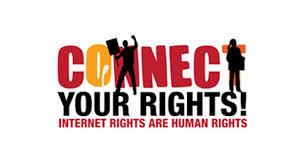
The Internet is a virtual space facilitating inter-connectivity among people and machines across the globe; which makes it an ecosystem of its own and not so different from the physical world. The web was designed to bring people together and make knowledge freely available. Internet access is one of the rights that have become inherent to humans. Everyone has a role to play to ensure the web serves humanity. Governments, companies and citizens around the world can help protect the open web as a public good and a basic right for everyone.
In the past few years a number of countries have begun to promote an internet governance model based on the concept of network sovereignty. Network sovereignty holds that governments should have total control of the internet within their borders. This model differs from the current multistakeholder model of internet governance in which governments, civil society, and the technical community are considered equal partners in ensuring that the internet remains one, interoperable, global network. In practice, network sovereignty affords governments the ability to monitor the flow of information online, control the type of content that is accessible, and access user data stored within their jurisdictions.
Throughout January 2017 to March 2017, the government of Cameroon interrupted and shutdown the internet in the two English-speaking regions (North West and South West). This was executed under the pretext of maintaining public order. According to Internet without Boarders (2017), this has since been the longest internet shutdown in the history of Internet interruption in the world. By Economist analysis the ecumenical implications and losses of the cut is estimated to over 440 million F.CFA (US $ 880,000). The Cameroonian government’s institution of Law No 2010/012 of 21 December relating to Cybersecurity and Cyber-criminality in Cameroon, the Law Against Terrorism and the new Penal Code punishes citizens who publish false information including on social media. This situations are practical examples of the network sovereignty and the power it gives a government and also the challenges it has on an entire nation and the world at large.

Network Sovereignty is a threat to an open internet and democracy since it goes against international laws and declarations like the African Declaration on Internet Rights and Freedoms. The 8th Principle of the African Declaration on Internet Rights and Freedoms on Privacy says “Everyone has a right to privacy online including the right to control how their personal data is collected, used, disclosed, retained and disposed of. Everyone has the right to communicate anonymously on the Internet and to use appropriate technology to ensure secure, private and anonymous communication”. The concept of network sovereignty goes against the above mentioned principle and Article 12 of the Universal Declaration of Human Rights which states “No one shall be subjected to arbitrary interference with his privacy, family, home or correspondence, nor attacks upon his honour and reputation. Everyone has the right to the protection of the law against such interference or attacks”.

A new movement of local, national, regional and international leaders made of Civil Society Actors, Organisations and Individuals are now rising for the fight for the existence of an Open Internet which is free, and accessible to all. There are coalitions like the Digital Rights Coalition, Association for Progressive Communications, the Internet Rights Principles and Coalition Campaign and Open Internet for Democracy. It is imperative for everyone to join the movement to ensure a safe and open internet as we are all beneficiaries of the Internet. Denis Miki Foundation is an active member of several of this coalitions and campaigns and encourages all to join in as an individual and/or organisation.

A new movement of local, national, regional and international leaders made of Civil Society Actors, Organisations and Individuals are now rising for the fight for the existence of an Open Internet which is free, and accessible to all. There are coalitions like the Digital Rights Coalition, Association for Progressive Communications, the Internet Rights Principles and Coalition Campaign and Open Internet for Democracy. It is imperative for everyone to join the movement to ensure a safe and open internet as we are all beneficiaries of the Internet. Denis Miki Foundation is an active member of several of this coalitions and campaigns and encourages all to join in as an individual and/or organisation.

